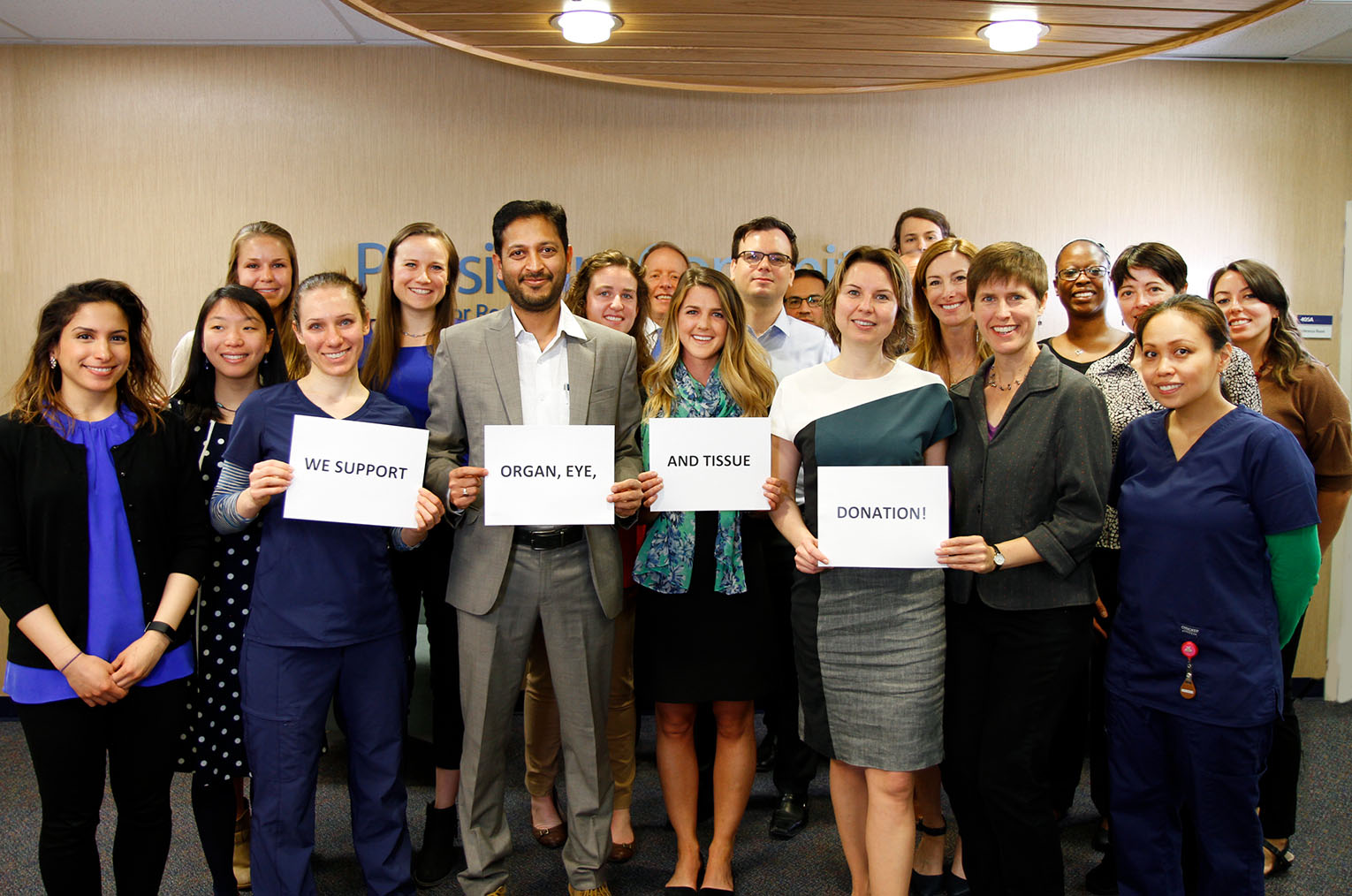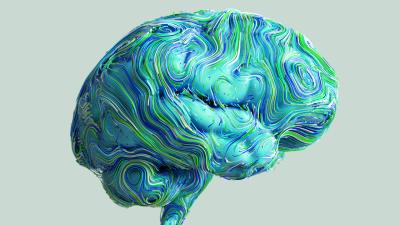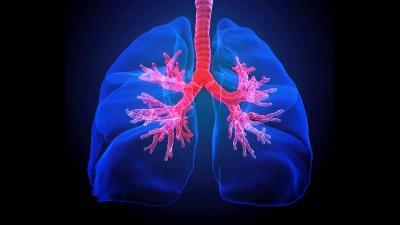April is National Donate Life Month!

Organ and tissue transplantation saves more than 33,600 lives in the United States every year. But did you know that organ and tissue research also makes major contributions to saving and improving human lives? Donating organs and tissues to medical research is equally noble to donating for transplantation. Medical researchers need human organs and tissues to conduct ethical, efficient research and to achieve breakthroughs in medicine, ultimately saving and improving millions of lives.
National Donate Life Month was established by Donate Life America and its partnering organizations in 2003. This month, the Physicians Committee for Responsible Medicine is encouraging you to consider registering to donate your own tissues for research.
Human organs and tissues are invaluable resources for medical research, diagnostic tests, biomarker discovery, drug development, product testing for safety or efficacy, and much more. Essentially every organ, tissue, and system of the human body is needed for research. Fresh intact organs and tissue samples are the most realistic model environment to conduct in-depth analyses of the human body. Human tissues are used in research and development across the full range of human biological systems, including cardiovascular, neurological, reproductive, digestive, excretory, hepatic, dermal, ocular, respiratory, immunological, metabolic, and endocrine systems research.
Numerous scientific discoveries would not have been possible without the use of human organs and tissues for research. Through brain donation, scientists discovered that male children with Autism Spectrum Disorder (ASD) have abnormally high levels of neurons in the region of the brain associated with emotional, social, cognitive, and communication development. An excess of neurons in any part of the brain can lead to abnormal brain function and development.1 Due to their physiological differences, animals do not develop ASD, which is one of the many reasons why researchers need to adopt human-relevant research methods. This finding impacts the way scientists study ASD, research that wouldn’t be possible without donation.
Another study using donated brain tissue found that people with Major Depressive Disorder (MDD) had lower expression of genes related to how brain cells communicate in the brain region associated with working memory and decision-making function compared to their healthy counterparts. The lower expression was observed for genes that are involved in synaptic function. When this is disrupted it may contribute to behavioral fluctuations, like those detected in people with MDD.2 This study increased scientists’ knowledge of the biology of MDD and allowed researchers to develop methods to stabilize gene expression, which may be more effective than current anti-depressive treatments.
Other monumental discoveries made using human tissues include the development of vaccines such as polio, chicken pox, rubella, and shingles. Advances in stem cell therapy can also be contributed to tissue donation. Researchers have learned how to reprogram human cells from donated tissues and make them into induced pluripotent stem cells. These cells can develop into neurons or other body cells that researchers can cultivate in labs to better understand diseases, such as Alzheimer’s disease.
Organ and tissue transplants take precedence over any other need. The circumstances of death and the medical history of the donor, however, determine suitability for transplantation. Medical professionals ultimately decide whether organs and tissues are suitable for transplantation. If organs and tissues are not viable for transplant, donation for research and education provides another option for willing donors and donor families to save human lives.
Most people can donate for medical research and education. Age and medical condition is not a barrier. Often times, a medical condition that might make someone an unsuitable organ or tissue transplant donor may be the exact thing a researcher needs to carry out an important study. There is no cost to the donor or donor family, and deceased donations may not interfere with funeral arrangements.
There are many options available for those who wish to donate their tissues to research. Below is a non-exhaustive list of reputable donation organizations. Tissues for rare diseases are in high demand. Research tissue donation agencies in your area for more information.
Donate Life America
Organ, eye, and tissue donation for transplantation
Donate Life America is nonprofit organization leading its national partners and Donate Life State Teams to increase the number of donated organs, eyes, and tissues available to save and heal lives through transplantation, while developing a culture where donation is embraced as a fundamental human responsibility.
National Disease Research Interchange
Organ and tissue donation for research
The National Disease Research Interchange (NDRI) is a not-for-profit organization that serves as a Human Tissue and Organ for Research Resource. It provides human tissues to scientists in academic, corporate, and independent research organizations throughout the world.
NDRI has been supported by the National Institutes of Health (NIH) for more than 30 years. Their tissue recovery network includes over 130 partners comprised of organ procurement organizations, eye banks, tissue banks and hospitals. Their biorepository facility is accredited by the College of American Pathologists. NDRI connects scientists with anatomical structures, organs, and tissues with annotated data to support research across the full spectrum of disease and disability.
International Institute for the Advancement of Medicine
Organ, tissue, and neonatal donation for research
The International Institute for the Advancement of Medicine (IIAM) provides non-transplantable, human organs and tissues for medical research, education, and development. IIAM works with organ procurement organizations, tissue banks, and donor families in the U.S. to provide tissues and organs to medical and scientific professionals around the world.
IIAM’s Neonatal Donor Program provides neonatal organs and tissues for medical research, education and development. This program offers a unique and invaluable service to researchers and to families whose babies will pass from natural causes shortly after birth.
Brain Donor Project
Brain donation
One out of every six people is suffering from a devastating neurological disorder or disease. That’s why brain donation is critically needed. The NIH NeuroBioBank has partnered with The Brain Donor Project to help potential donors register for brain donation. The Brain Donor Project is a nonprofit organization that aims to increase the supply of human post-mortem brains donated for scientific research.
Science Care
Whole body donation
Science Care is the world’s largest accredited whole body donation program. Science Care works with medical schools, research hospitals, and medical device companies to help support the training of physicians and surgeons and to assist with the development of new medical products, procedures, and treatments.
The gift of body donation through Science Care has contributed to the advancement of treatments for conditions such as Alzheimer’s disease, cancer, diabetes, multiple sclerosis, amyotrophic lateral sclerosis (ALS), arthritis and degenerative joint disease, spinal injuries, hip replacement surgery, infectious diseases, heart disease, and much more.
Pattern.org
Tumor donation
Pattern.org was launched by the Rare Cancer Research Foundation, a non-profit dedicated to curing rare cancers through collaborations that conduct effective research and accelerate deployment of promising therapies. Pattern.org enables cancer patients to directly donate their tumor tissue and medical data to high-impact research projects. In this way, Pattern.org empowers patients to be directly involved in cancer research.
Mayo Clinic
Whole body donation
Mayo Clinic's anatomical gift program accepts whole-body donations for the purposes of medical education, research and surgical training, and the development and testing of new surgical devices and techniques. Body donation plays a critical role in helping medical and health-related science students master the anatomy of the human body and provides researchers with an essential tool for medical discoveries.
References
- Courchesne E, Mouton PR, Calhoun ME, et al. Neuron number and size in prefrontal cortex of children with autism. JAMA. 2011;306(18):2001–2010. doi:10.1001/jama.2011.1638
- Kang HJ, Voleti B, Hajszan T, et al. Decreased expression of synapse-related genes and loss of synapses in major depressive disorder. Nature medicine. 2012;18(9):1413-1417. doi:10.1038/nm.2886.







